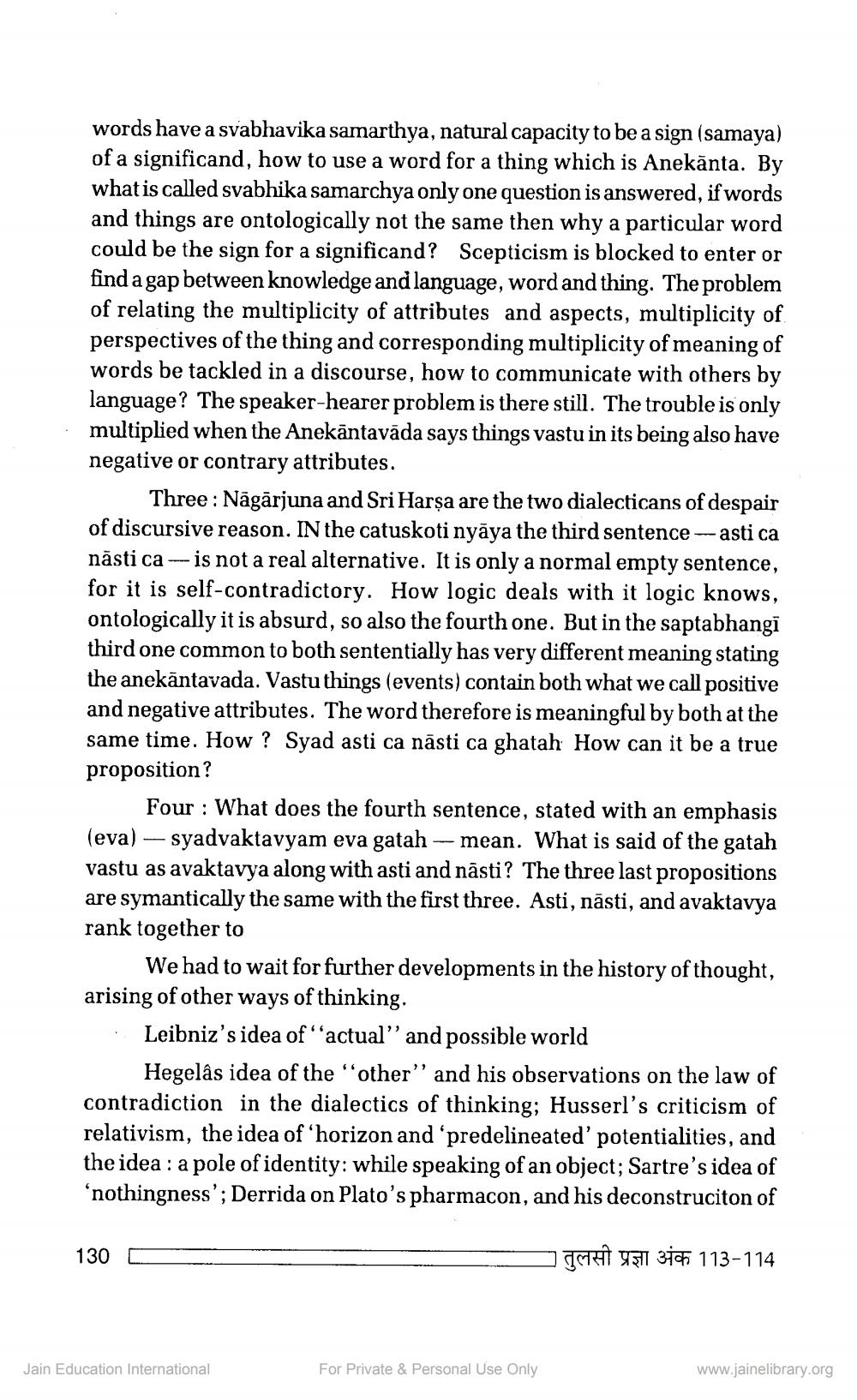________________
words have a svabhavika samarthya, natural capacity to be a sign (samaya) of a significand, how to use a word for a thing which is Anekanta. By what is called svabhika samarchya only one question is answered, if words and things are ontologically not the same then why a particular word could be the sign for a significand? Scepticism is blocked to enter or find a gap between knowledge and language, word and thing. The problem of relating the multiplicity of attributes and aspects, multiplicity of perspectives of the thing and corresponding multiplicity of meaning of words be tackled in a discourse, how to communicate with others by language? The speaker-hearer problem is there still. The trouble is only multiplied when the Anekantavāda says things vastu in its being also have negative or contrary attributes.
Three Nagarjuna and Sri Harsa are the two dialecticans of despair of discursive reason. IN the catuskoti nyaya the third sentence-asti ca nāsti ca - is not a real alternative. It is only a normal empty sentence, for it is self-contradictory. How logic deals with it logic knows, ontologically it is absurd, so also the fourth one. But in the saptabhangi third one common to both sententially has very different meaning stating the anekantavada. Vastu things (events) contain both what we call positive and negative attributes. The word therefore is meaningful by both at the same time. How? Syad asti ca nãsti ca ghatah How can it be a true proposition?
Four: What does the fourth sentence, stated with an emphasis (eva) syadvaktavyam eva gatah - mean. What is said of the gatah vastu as avaktavya along with asti and nästi? The three last propositions are symantically the same with the first three. Asti, nāsti, and avaktavya rank together to
We had to wait for further developments in the history of thought, arising of other ways of thinking.
Leibniz's idea of "actual" and possible world
Hegelâs idea of the "other" and his observations on the law of contradiction in the dialectics of thinking; Husserl's criticism of relativism, the idea of 'horizon and 'predelineated' potentialities, and the idea: a pole of identity: while speaking of an object; Sartre's idea of 'nothingness'; Derrida on Plato's pharmacon, and his deconstruciton of
। तुलसी प्रज्ञा अंक 113-114
130
Jain Education International
For Private & Personal Use Only
www.jainelibrary.org




